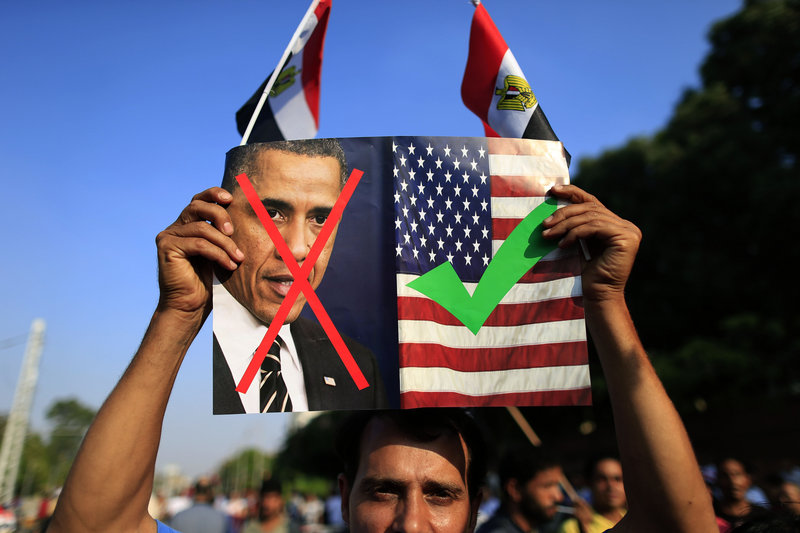CAIRO — A dispute over who would become Egypt’s interim prime minister continued Sunday, with sharp divisions opening about the proper scope of religion in the country’s politics among the mixed coalition of activists and politicians who banded together against their Islamist government last week.
With both defenders and opponents of ex-president Mohammed Morsi calling their supporters to the streets of Egypt on Sunday, there were fears of renewed clashes between sides in a repeat of Friday, when at least 36 people died.
Egyptian state media on Saturday reported – and later rolled back – that Mohamed ElBaradei, a former chief of the U.N. nuclear agency, had been appointed Egypt’s interim prime minister. The reversal came after Islamists who joined in the coalition against Morsi threatened to withdraw their support if ElBaradei were installed.
“Indications are directed at a certain name, but talks are still ongoing,” said Ahmed el-Moslemany, a spokesman for interim President Adly Mansour, speaking at a news conference that had been billed as an announcement of a new prime minister.
The unusual back-and-forth suggested that ElBaradei – a divisive figure in Egypt who is seen as a staunch secularist by groups who want a greater role for religion in politics – may have proved too controversial a choice as prime minister. A top aide to ElBaradei had also portrayed the appointment as a done deal Saturday.
But as reports of ElBaradei’s selection filtered out, leaders of the ultraconservative Salafist Nour party threatened to withdraw from the broad coalition of groups backing a path toward elections.
“The nomination of ElBaradei violates the road map that the political and national powers had agreed on with General Abdel Fatah al-Sissi,” Ahmed Khalil, the Nour party’s deputy leader, told the state-run al-Ahram newspaper.
Many Islamists view ElBaradei as uninterested in giving them a say in Egypt’s affairs.
“Baradei in a way is kind of the ultimate liberal,” said Shadi Hamid, an Egypt expert at the Brookings Doha Center. “He has a very antagonistic relationship with the Muslim Brotherhood, which is why it doesn’t bode well for Brotherhood reintegration” if he were to come to power.
Just as the democratically elected Morsi experienced a remarkable fall from grace this week, ElBaradei’s unelected rise to the position of prime minister would have marked a remarkable turnaround for a politician who has struggled to find popular support outside Egypt’s urban, educated classes, in a country where roughly half the population lives on less than $2 a day.
Send questions/comments to the editors.



Success. Please wait for the page to reload. If the page does not reload within 5 seconds, please refresh the page.
Enter your email and password to access comments.
Hi, to comment on stories you must . This profile is in addition to your subscription and website login.
Already have a commenting profile? .
Invalid username/password.
Please check your email to confirm and complete your registration.
Only subscribers are eligible to post comments. Please subscribe or login first for digital access. Here’s why.
Use the form below to reset your password. When you've submitted your account email, we will send an email with a reset code.